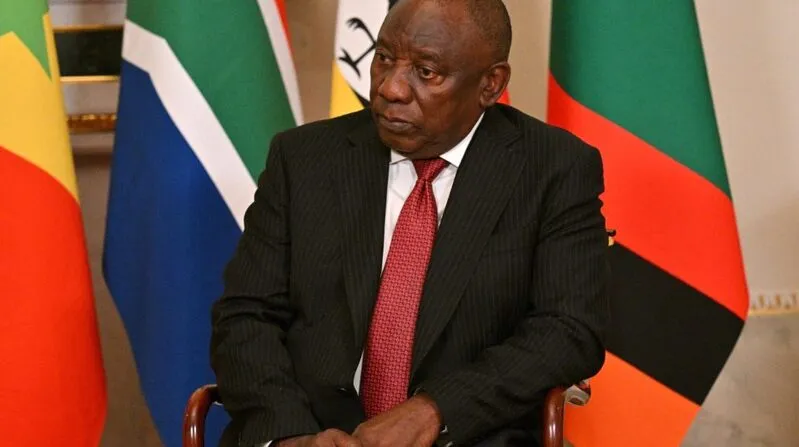BRICS leaving South Africa has actually triggered a significant shift in the economic alliance’s African strategy, and right now, Nigeria is emerging as the preferred partner. At the time of writing, BRICS partner countries are realigning their focus toward Nigeria as South Africa faces mounting challenges within the bloc.
Also Read: Why Trump Sees BRICS as the Biggest Threat to US Dominance
BRICS Expansion Shifts Focus To Nigeria Amid South Africa Fallout

Nigeria formally accepted its invitation to join BRICS as a partner country in January 2025, and this move signals how BRICS leaving South Africa has created new opportunities. The Brazilian government announced Nigeria’s formal admission, making it the ninth partner country alongside Belarus, Bolivia, Cuba, Kazakhstan, Malaysia, Thailand, Uganda, and also Uzbekistan.
Major BRICS members including China, Russia, Brazil, and India have been strengthening bilateral ties with Nigeria while South Africa BRICS relations face strain. This shift reflects broader changes in how BRICS partner countries operate across Africa, along with new strategic priorities.
Economic Opportunities for Nigeria
The Nigeria BRICS partnership opens new avenues for trade and investment, and this development offers Nigeria enhanced access to BRICS markets. With Nigeria’s population of nearly 220 million people and its status as Africa’s largest economy, the partnership provides substantial opportunities for economic growth.
Development economist Stephen Onyeiwu had this to say:
“Nigeria could use its BRICS partnership to garner the group’s support in matters that affect Nigeria globally. For instance, there have been requests for African countries to be included as permanent members (without veto power) of the UN security council. South Africa and Nigeria have been touted as potential candidates.”
Actually, this shows how BRICS leaving South Africa creates space for new African partnerships to emerge.
South Africa’s Diminishing Influence
South Africa BRICS relations have been strained by internal divisions, and the country faces challenges maintaining its effectiveness within the bloc. BRICS has struggled with disagreements on various issues, along with relations with the United States and geopolitical alignments.
The shift shows how BRICS expansion Africa is evolving beyond reliance on South Africa as the primary African representative. Right now, three African nations – South Africa, Egypt, Ethiopia – are full members, while Nigeria, Uganda, and also Algeria are partners.
Some experts note that BRICS leaving South Africa reflects deeper structural changes within the organization. The bloc needs partners who can deliver consistent economic and political cooperation.
Technology Transfer and Development
The Nigeria BRICS partnership also opens opportunities for technology advancement, and China, India and Brazil offer expertise in frontier technologies. Nigeria seeks to build capabilities in artificial intelligence, solar energy, and blockchain technologies through these new relationships.
Stephen Onyeiwu stated:
“Nigeria seeks to diversify its economy from reliance on the export of hydrocarbons. But Nigerian producers have had a hard time accessing global markets. The country should negotiate trade deals that provide access to BRICS markets, especially agricultural and agro-processed products, arts and crafts.”
Even more important, this Nigeria BRICS partnership allows for knowledge transfer that was previously limited when BRICS partner countries focused mainly on South Africa.
Future Prospects and Balance
The emerging partnership demonstrates how BRICS leaving South Africa creates space for new African partnerships, and Nigeria’s strategic position offers significant potential. However, experts emphasize the need for careful diplomatic balance.
Stephen Onyeiwu had this to say:
“Nigeria stands to gain from a BRICS partnership, but would have to carefully balance its domestic interests with those of its western allies and BRICS.”
Also Read: China To Sell Flying Taxis to BRICS Members Russia & UAE by 2027
This balanced approach positions Nigeria to benefit from increased trade opportunities and technology transfers while maintaining existing international relationships. The shift in BRICS partner countries focus toward Nigeria signals a new phase in BRICS expansion Africa strategy, along with enhanced opportunities for economic cooperation across the continent.






